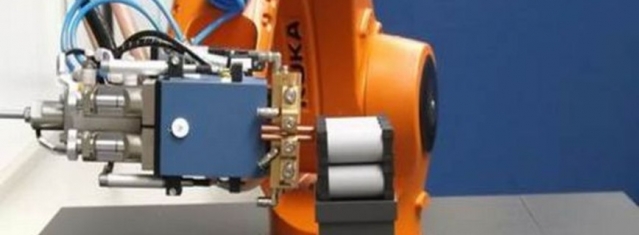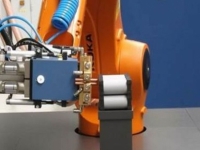Business
HANNOVER MESSE 2016 RESEARCH
HANNOVER MESSE 2016

HANNOVER MESSE 2016. (Source: hannovermesse.de)
Using energy efficiently is a cornerstone of the energy transition, but doing so in industry can be difficult due to unfulfilled technical requirements. For example, there are no suitable storage systems. To solve this problem, research institutes and industrial companies are working together on the project "FastStorageBW II" to develop the next-generation energy storage system for industry.
"The goal is to create a hybrid that combines the advantages of batteries and capacitors," explains Dr. Olaf Wollersheim at the Karlsruhe Institute of Technology. Wollersheim directs the project Competence E, which researches the economically relevant aspects of everything from battery materials to electrical storage systems and develops, builds and tests storage prototypes.
The combination of both systems, named Powercaps, uses the advantages and avoids the disadvantages: a battery can absorb a lot of energy and save it for a long time, but it takes a long time to charge, has a limited lifespan and withstands only a limited number of charge cycles.
The combination of both systems, named Powercaps, uses the advantages and avoids the disadvantages: a battery can absorb a lot of energy and save it for a long time, but it takes a long time to charge, has a limited lifespan and withstands only a limited number of charge cycles.
A capacitor, on the other hand, absorbs energy quickly and is durable, but does not have the storage capacity and endurance of a battery.
Huge market potential for the hybrid cells
"The market potential for hybrid cells is enormous. It already amounts to roughly half a billion euros, and in four to six years it could reach two or three billion euros," says Edward Pytlik, who manages the R&D department at Varta Microbattery GmbH. The company managed to derive the new Powercaps from lithium-ion batteries, albeit with an aqueous electrolyte system. This averts the danger of combustion, which until now was an important argument for barring conventional lithium-ion batteries from many industrial sectors.
Huge market potential for the hybrid cells
"The market potential for hybrid cells is enormous. It already amounts to roughly half a billion euros, and in four to six years it could reach two or three billion euros," says Edward Pytlik, who manages the R&D department at Varta Microbattery GmbH. The company managed to derive the new Powercaps from lithium-ion batteries, albeit with an aqueous electrolyte system. This averts the danger of combustion, which until now was an important argument for barring conventional lithium-ion batteries from many industrial sectors.
The new electrochemical storage units are able to effectively buffer peak loads in factories. "Quite often cables, transformers and electronics are set for a peak load of, for example, 300 kilowatts, although on average only three kilowatts are needed. With the new Powercaps the peak value can be limited to ten kilowatts, which enables tremendous cost savings," calculates Wollersheim. Two intralogistics companies that already contribute to FastStorageBW II will be the first to use the prototypes. Powercaps can be applied in all areas where power demand fluctuates. Potential uses include peak-load buffering in companies with high power demand, uninterruptible power supply and frequency control in power grids.
Liability for this article lies with the author, who also holds the copyright. Editorial content from USPA may be quoted on other websites as long as the quote comprises no more than 5% of the entire text, is marked as such and the source is named (via hyperlink).






